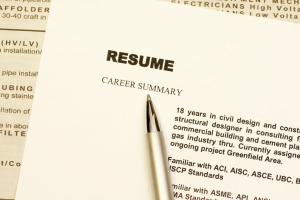Resume Tips

Resume Tips
1. If asked to give a presentation, ask how many people you will be presenting to. This may affect your style or approach. Consider your audience when preparing your presentation and make hand outs if necessary.
2. Prepare well! Read up on any specifics mentioned in the job description. Think of clear examples that you can give during your interview that tie back to each item listed on the job description. Thinking through the examples and having them prepared will make you feel more at ease during your interview. Also, bring extra copies of your resume to the interview in case you meet with multiple people.
3. Think before you answer the questions. A well-considered clear answer is better than a rushed one off the top of your head. A good technique is to answer in summary first and then to expand.
4. Don’t rely on only one example to answer questions because it will look as if you only have one relevant example. Before you go to the interview, think about several example projects or pieces of work that you have been involved in that pertain to the position. Give examples that illustrate a problem and how you resolved it in a positive way. Try to give examples that give the interviewer an idea of your problem solving skills in addition to how you handle and resolve stressful situations.
5. Avoid giving answers that are too lengthy or very short. You should fully answer the question, but keep your responses to 1 – 2 minutes each. Pause after you answer the question and take a short break. Sometimes a moment of silence between the interviewer and the interviewee can be a good thing. This gives the interviewer a chance to formulate their next question. Allow the interviewer to drive the interview. Answer the questions by giving a thoughtful, articulate answer and then pause and wait for the next question.
6. It is our recommendation that you always dress business professional for an interview. Even if our client has a business casual dress code, it is always best to dress business professional in order to make the best impression possible. We recommend a dark colored suit – either black, grey or navy. Avoid bright colors and wear minimal, simple jewelry. You want the focus to be on you, your background and experience, and the impact you can make for the organization. Carry a nice portfolio with extra copies of your resume and a pen and pad for taking notes.